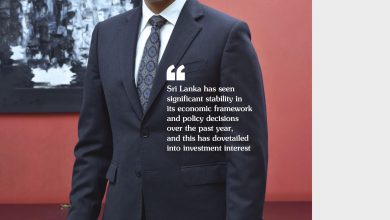EXECUTIVE HEALTH
LIFE IN STAGES
BY Dr. Sanjiva Wijesinha
The words in the Bible’s Book of Psalms, which say that “the days of our years are threescore years and ten,” no longer hold true in the 21st century. Most people now live longer than this prescribed period of 70 years.
Therefore, we need a more realistic measurement of our lifespan; and it would be better for us to consider our lives as comprising three stages instead.
The first stage, from birth until 30, is the period of youth when we are growing up, attending school, commencing employment and starting our families. At this stage, we have lots of energy and plenty of time… but very little money.
And the next three decades – from 30 to 60 – constitute the period of middle age. We’re now working hard and amassing wealth to a greater or lesser degree, our families are growing up and we’re considered to be responsible members of society.
During this period, we have sufficient energy to be active and adequate money to spend. But unfortunately, we’re working so hard and caught up in the mundane duties of householders that we don’t have the time to spend our money and energy.
The final tricennium – from 60 to 90 – is when most of us (unless we are British royalty, American presidents or Sri Lankan politicians!) have retired from our full-time jobs. Our children have grown up; and if we’re lucky, we’ve achieved much of what we had hoped to accomplish in our careers.
And no longer need to wake up early to get to work! This is the time of retirement, which we have been looking forward to.
Unfortunately, by the time we reach this third period of our lives – when we should have money and plenty of time – we find that we no longer have the energy we need to enjoy our retirement.
Even more sobering is the fact that our contemporaries are passing away one by one – and reminding us of our own mortality.
Knowledge of this changing balance of time, energy and money should prompt us to plan for our own inevitable third period.
Once we retire, we tend to lose touch with the social network we had while we were working. Social connections are extremely important for human wellbeing; and as such, we need to stay connected.
Regular contact with at least 10 friends has been shown to boost happiness significantly. So keep in touch with pals, join a group of like-minded people and accept social invitations. Sharing reminiscences and happy memories is known to generate good feelings and positive emotions.
We also need to remember to exercise regularly for at least half an hour. It doesn’t matter whether this is achieved by walking, swimming or dancing. What matters is that it’s essential for our mental and physical health.
Exercising in nature is even better – so is working out in a group and/or exercising with motivating music. Not only is physical exercise good for our overall health and wellbeing, it also keeps our joints, muscles and circulation in good shape.
As we contemplate entering our third stage of life, we have a responsibility to make plans and take steps early, to ensure that we do all that’s possible to maintain our mental, physical and social wellbeing as we grow older.






